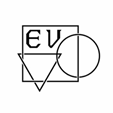Non Fiction
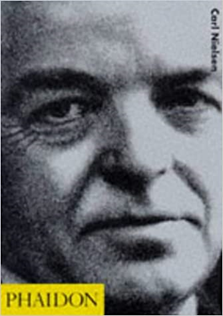
Carl Nielsen, Phaidon Press (1997)
I began research in Denmark over the summers of the early 1990’s because outside of his native country his remarkable operas, songs, keyboard music etc were overlooked; also because the potted biography was a recycled fairy tale of a simple country boy elevated to his nation’s greatest composer. This did not ring true: Carl Nielsen’s music and writings reveal an astute and articulate observer of life, full of contrasts, for example in his revolutionary thoughts and his polite demeanour.
It soon became apparent why there was no biography in English. Source materials had been destroyed by the family and embargos placed on archives were never lifted. Well-wishers wanted to conceal various episodes in his life. My research in Copenhagen’s Royal Library and Odense’s Nielsen Museum polarised opinion: the Director of Libraries attacked me in print quite viciously for interfering; while the Chief of the Nielsen Edition kindly acknowledged my book as a valuable contribution.
It was only possible because I had the good luck to befriend Torben Schousboe of Copenhagen University, the world’s leading expert during these dark decades; and also an introduction to Ronald Adlem, a British soldier who lived with the composer’s younger daughter, Anne-Marie, in Denmark over the Second World War.
REVIEWS
Fascinating and fastidiously researched. — The Scotsman
This thorough yet eminently readable biography examines the life and works of Danish composer Carl Nielsen (1865-1931), from his studies at the Royal Danish …
Fiction
THE HOLY BLOODLINE TRILOGY
Who is guarding the truth from the outside world?
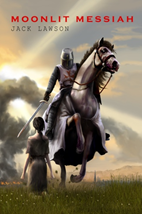
Moonlit Messiah
Read the Original Grail Thriller
The Priory of Sion guards a secret at the heart of Christianity.
International police pursue an Oxford historian in his forties. He has met Sara — a thirty-year old woman, born in France, educated in Britain. Both agree to discover why she is being watched. Her family secret is known to a trusted friend, an erudite, theatrical senior who appears to help them but he is using the Priory’s secret to accomplish his own goals.
Eventually they find her brother who had not died in a car crash in France which killed her parents and unravel the agenda of people behind the scenes who are controlling events.
In the epic conclusion Sara rises to a truly messianic role and saintly self-sacrifice in the cause of others: the displaced Palestinians. This shocks her supporters and causes her daughter, sole survivor in the line, to reject the Judeo-Christian faith.

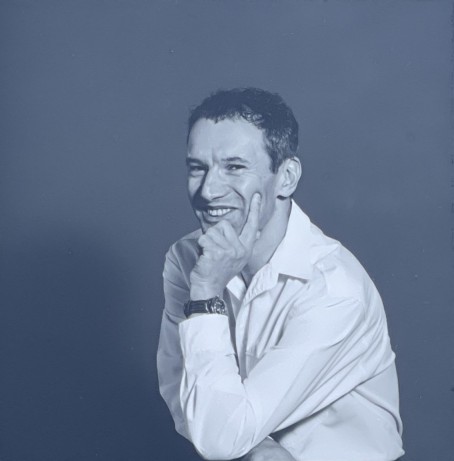
Written 4 years before The Da Vinci Code, Moonlit Messiah was highly praised but declined by Dan Brown’s publishers in 1998. The earlier novel was properly researched and expressed in detail and structure the same plot, its twist, its ending, its premise, its six main characters, five locations, language, and many artefacts including the cryptex which (in both novels) carried the “documented genealogy” of the Davidic line.
The plot is the murder of a civil servant before the hero can attend a meeting. The heroine Sara / Sophie is being watched by the Church who suppress a secret that would undermine the faith. The hero is a historian who agrees to help her, on her terms, to solve the mystery.
The twist in the plot is the Teacher, an alter ego of the elderly savant friend who, it transpires, is the villain. The plot ending is the discovery that her brother had not died in a car accident 26 years previously in France and that it was intended to kill their parents.
The characters play the same role in Code and have strikingly similar appearance, ages, roles, and back stories as expressed in the manuscript I sent Transworld Publishers four years before the American author visited their London office. Why did they reject mine outright and co-author a trivialized adaptation for Dan Brown?
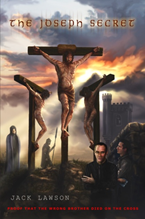
The Joseph Secret
Sequel and Solution
Sara’s grandson is kidnapped: The Priory of Sion Reconvenes.
Sara’s daughter, Debora, rejects the Jewish and Christian religions. At a Buddhist retreat she conceives without carnal desire, openly witnessed by all, which the abbot identifies as atavistic and innocent incarnation. Thus Yashi is born,grandson of the Moonlit Messiah, groomed to be World Teacher and reincarnated lama.
Aged seven he is abducted from his school in the Lebanon. No one has heard of the “Beirut Islamic Brigade” and it may be a western cover.
When police are unable to help Yashi’s Judeo-Buddhist mother, Debora,cautiouslyaccepts help from a Greek Art collector with a black eye patch and a wicked grin. Georg Kyriakos is reticent to discuss the source of his family’s wealth. It is something he will use to secure the release of Yashi.
Flying over France, Georg points to the Cathar country and tells Debora the story which explains his family wealth. He is the great-grandson of the love child of the famous priest of the Church of Rennes-le-Château, the man suddenly enriched in 1891 by discovering a great treasure and its empowering secret.

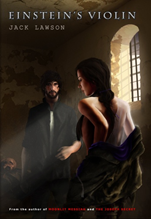
Einstein’s Violin (2012)
Based on a true story — the loss at sea of the INS Dakar, a Class T submarine.
The celebrated scientist regrets that his work unleashed the atom bomb and secretly entrusts to the state of Israel a deadlier weapon based on his energy-mass equation, the basis of travel in time.
Daylight breaks. Two American agents board an Israeli submarine which sets out from Portsmouth, England on 9th January 1968. The cargo, a brown suitcase belonging to the father of atomic power, will not reach Haifa. The Dakar vanishes two days before reaching the port. An international search over thirty years will find no explanation.
One hundred and twenty years later, a wealthy industrialist reads declassified documents revealing that the American agents worked for Joint Intelligence in USA after their unexplained loss at sea. He learns that history was revisited: in 1981 the Pentagon used intel from 1991; they ordered Israel’s destruction of the Iraqi’s Osiris nuclear facility.
In the past, for “playing God” by creating a crease in time Sara, “the Moonlit Messiah” had cursed in eternity her trusted mentor, Robert F. Kohen, a Pentagon scientist. He had changed the past to avoid the destruction of Tel Aviv ten years in the future. He had discovered Einstein’s antidote to his own weapon but changing destiny brings the danger of confusion for humanity.
In a present, Yashi son of Debora, daughter of Sara the Davidic survivor, acquires the knowledge of time travel by the natural means of yoga and mind control. After visiting the Freemasons of Jacobite Scotland, he is sent by foot to the city of Turin to channel the energy from the Shroud’s 1st century pollen genes. Transformed by the energy, he disappears before the 18th century brothers who are startled.
A reborn Yashi enters history in the 1st century Roman province Palestina as the Disciple Jesus Loved. As a time traveller Yashi must not change the past. He can only witness the senseless death and desolation of a beloved man.
Returning to the present with “the secret known to Judas alone” Yashi visits Liverpool Cathedral but no one will listen. No one will believe. And no one will understand.
AMAZON REVIEW
As a ‘holiday reader’ I found Einstein’s Violin to be unputdownable, page turning rip roaring yarn of a read. All the more enjoyable as it is based on a real-life, unexplained mystery, thoroughly researched and creatively solved by the author.
